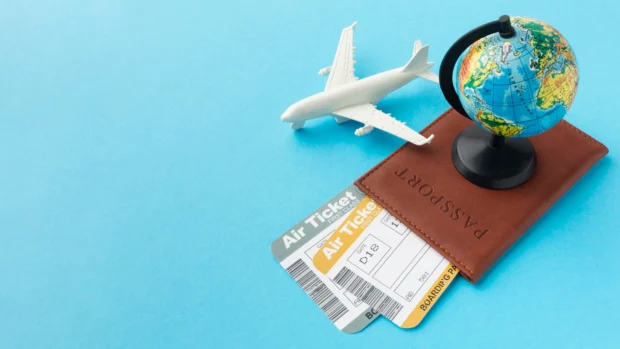Medical tourism is described as the act of someone leaving their home country to travel to another country to receive medical treatment or surgery. Most people partake in medical tourism to obtain surgery or treatment for a lower cost. The majority of medical tourists from the US travel to Canada and Mexico.
Why Do People Seek Medical Tourism?

There are a variety of reasons why someone may decide to become a medical tourist. The biggest contributing factor is lower-cost procedures, but other reasons include recommendations from family or friends, and combining medical care with a vacation.
In 2019, it was estimated that 780,000 Americans traveled abroad to receive surgeries or some form of medical care. The number of Americans traveling in 2020 lessened to 290,00 but is expected to rise again.
Pros of Traveling Abroad for Procedures

There are some pros to choosing, or thinking about choosing, to travel abroad for medical services. The largest and most impactful pro is reduced service cost. The overall cost of healthcare in developed countries is increasing, but many patients save between 30% to 80% by traveling abroad.
The second benefit is high-quality healthcare. While most people think that traveling abroad for medical care means one is receiving low-quality services from untrained doctors, this is far from the truth. Many doctors offering services abroad studied medicine in a western country like the United States. And the medical facilities are often accredited through one of these organizations: JCI, JCAHO, and ISO.
Immediate service is another pro of medical tourism. Many patients find that they have immediate access to the treatment they need when traveling abroad. This appeals to many people who are coming from countries with public health care systems. Waiting is not always an option, and medical tourism gives them a chance to be placed on the priority list.
Many diagnoses are able to be performed via the telephone or internet, providing many with increased convenience they do not have in their home country’s health care system. Surgical procedures can also be scheduled from the comfort of one’s home. The patient doesn’t have to leave their home to travel to the clinic or hospital just to make an appointment.
As the name suggests, medical tourism also offers people a chance to travel. While they are traveling for medical reasons, they are still presented with the opportunity to explore the country where they are seeking medical care. Medical tourists seeking dental care, cosmetic surgery, or wellness treatments are especially able to benefit from the beautiful scenery and regular tourist scene.
Cons of Traveling Abroad for Procedures

While medical tourism comes with pros, it also comes with cons that need to be considered before deciding to travel for care. The main con to take into consideration is at home or follow-up care. Follow-up care can be received in the country where the procedure is taking place, but in many instances, patients travel home very soon, if not immediately, after receiving treatment.
This means most patients will receive no follow-up care unless they choose to visit a doctor in their home country. Most patients will go home and continue on with their day-to-day lives. The lack of follow-up care, especially from the doctor who performed the procedure, can put a patient at risk for complications like infection.
Another con to consider is what happens if something goes wrong. While patients should be thoroughly researching the country, medical facilities, and medical professionals they are traveling to before ever booking their appointment, this isn’t always the case. In rare instances where things may go wrong, medical tourists will find it incredibly hard to sue for malpractice or receive compensation for an injury obtained while abroad.
This hardship arises from doctors overseas potentially having less malpractice insurance than doctors in countries like the US. Or the governing body in the medical tourism countries limiting payouts for such injuries.
Researching A Doctor’s Expertise Before Traveling

If one is considering medical tourism, one must thoroughly research any potential doctors. There are four key points to research to ensure the doctor a patient chooses is the right one for the job.
A doctor’s education, licensure, and training should be researched and considered. Where they studied medicine and obtained their license to practice is vitally important. Ideally, a doctor should receive their education from an accredited college and should be licensed in the area/country where they practice medicine.
Medical certification should also be researched. Many doctors abroad claim to have received certification in countries such as the US, UK, or other western nations. These claims should be researched to ensure it is truthful.
How long and where the doctor runs their practice is also of importance. Ideally, the doctor will have practiced medicine for several years and be working in a JCI or ISO facility. These facilities have high certifications and only well-qualified doctors can work there.
Additional items to research: does the doctor have a contract for malpractice, do they have previous malpractice claims, and are their certifications and licenses up to date.
What Services Can Be Provided Through Medical Tourism?

There are many services and specialized medical procedures one can receive abroad. Some of these include orthopedic surgery, neurosurgery, general medicine, hyperbaric therapy, and even hair transplants.
These services are much more affordable than those offered in most western countries. For example, in the United States, an orthopedic surgery like a double hip replacement would cost between $21,000 and $34,000, but the same procedure can typically be obtained through medical tourism for $12,000.
Even cosmetic procedures like hair transplants are far cheaper abroad. A DHI hair transplant in the US can cost upwards of $14,000 but when traveling for care, one can receive a DHI for $3,600.
Conclusion
Overall, medical tourism, like any healthcare-related service, comes with pros and cons. These pros and cons should be researched and considered before jumping into a decision. Patients should also thoroughly research the doctor they are considering booking an appointment with and ensure the doctor’s qualifications are legitimate and up to date.
 Jewel Beat
Jewel Beat

